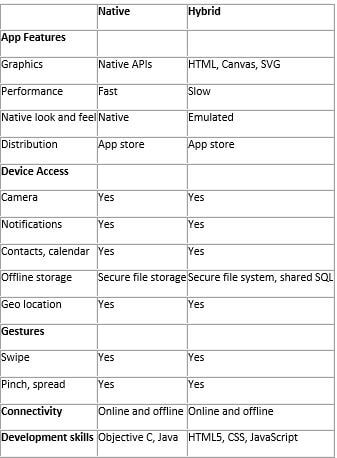
Choosing right platform for mobile development:
According to ABI research Mobile shopping will account for $163 billion worldwide by 2015. From this it is very clear that mobile devices are going to dominate the marketplace.
One of the common problems that market facing is people is trying to port their existing applications in to mobile platform. They are trying to include all the functionality in web version into the mobile version without considering user needs, capability of device etc.
Mobile app development has two approaches.
- Native app development
- Hybrid app development ( embed HTML web apps in a thin native container )

Native apps are device specific apps that run directly on mobile device. Hybrid apps run through web browsers using frameworks like Phonegap and Titanium. Choice of development platform is based on several factors. Before deciding the development platform we need to think through all these factors and should take a wise decision.
Native apps have huge advantage over hybrid apps when compared to user experience and performance. Native apps directly run on the mobile devices so then can easily access all phone features like accelerometer, GPS, camera etc. Some of these hardware related features are accessible using frameworks like Phonegap but the user experience won’t match to the native apps when compared to richness and performance. Native apps always have smooth performance and richness when compared to hybrid development platforms.
Native apps are good for gaming apps, performance extensive apps like real time tracking apps, standalone apps, photo manipulation apps etc. Hybrid apps are good for website extensions, News feeds, eCommerce sites etc.
Choosing Native apps has some trade-offs. Companies need to develop mobile apps for each platform like iOS, Android, Windows etc, if they choose native apps as their choice of development. If there are any changes in the app they need to do it for each platform and it is tedious process. In case of hybrid apps the development is going to be in HTML5, CSS3 and JS. This reduces the development cost and you will be having advantage of plenty of resource. The following table is a summary of the comparison of development platforms .
Difference between Native & Hybrid platforms:
Source :developerforce.com
In conclusion, With each development platform there are trade-offs and there is no simple answer to which development platform is best, it all relies on the business goal, performance requirement, usability and costs.

